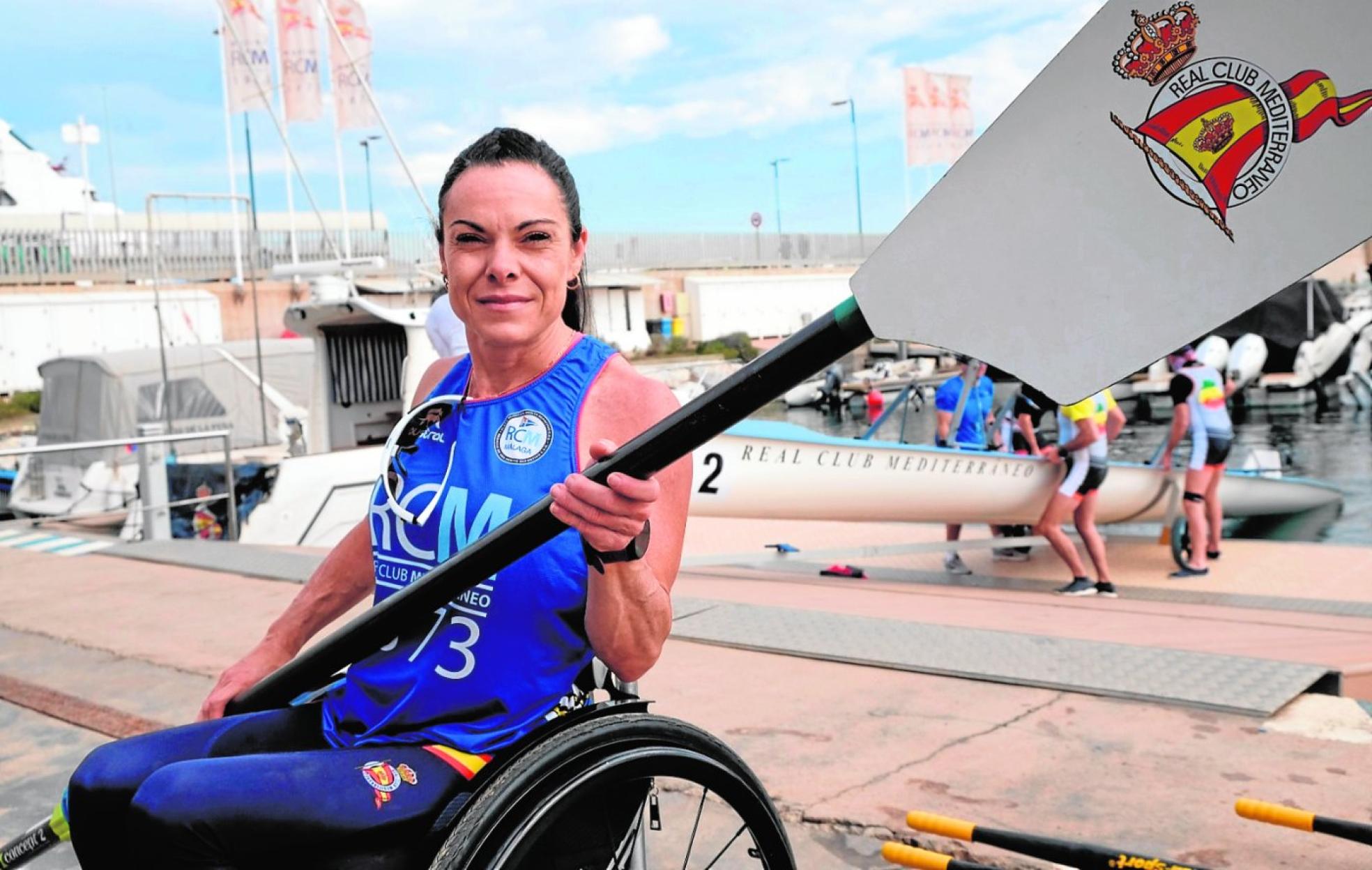The one second that changed her life
Laura Sánchez. ·
The Malaga nurse was in an accident that put her in a wheelchair. Nine years later she has found her way through sport and is the only female rower in Spain to compete in her adapted categoryMARINA RIVAS
Friday, 27 May 2022, 11:22
In a time where egocentricity and selfishness have become two of society's biggest penances, it's good that someone stops the world, slaps you with a reality check and reminds you that you and your problems aren't always the most important thing. Laura Sánchez was one of those who thought that turning 30 meant a new cycle of life had begun, that it would be a time for change. But she didn't imagine that her life, in barely a second, would become a nightmare. She had just finished one of those neverending, 24-hour shifts at the Costa del Sol Hospital in Marbella. She was exhausted and only wanted to get home, but her tiredness was too much for her. "I fell asleep at the wheel. I was at a roundabout, hit the cement edge and the car flipped. The roof squashed the seat, my spine did a zig-zag and touched my bone marrow in several places," she explained.
Suddenly, nothing would be the same, only she didn't know it yet. She was a positive person, she always was, but on the inside she knew that something wasn't quite right. She was in hospital in Seville for a month and a half before working up the courage to ask if she would walk again. "The doctor said I had a 10% chance and I thought that if I had that chance then I would go for it." In fact, with her fierce determination, she exploited that percentage to the absolute limit, which now means that she can at least stand up to get into her adapted car or move between different machines at the gym.
Rowing is a sport that has made her happy again, and has proved that she is neither inferior nor different
Born again
But no, it wasn't in Andalucía where she was encouraged to improve. Sánchez desperately looked for help, she wanted to feel like she could fend for herself. And in Catalonia they gave her a helping hand. "The Junta de Andalucía referred me to the paraplegic hospital because they stopped financing the costs. It was 15,000 euros a month for rehabilitation. But I went to Barcelona, to the Guttman Institute at the Neurorehabilitation Hospital and got a place there for nine months to undergo rehab. I had to register on the census there and, with a lot of luck, I got a place. It was financed by the Catalan regional government," she explained.
It was there where she was born again. "They taught me how to live again: to dress myself, use a wheelchair, go up and down the stairs, take a shower... And then the physical and psychological rehab. They teach you how to lead an independent life," she said. That's what she wanted: to stop feeling powerless, or useless. After that she completed an important phase: acceptance.
It was also at this centre where she met others in the same situation who sought refuge in sport and managed to turn it into their way of life. She tried different adapted sports, but nine years later found her way with rowing. "I started in November. I discovered it through a man with a similar disability who also did rowing here at the Real Club Mediterráneo [RCM, in Malaga]."
Making history
When she arrived, Ramón Gómez Cotilla, one of RCM's most promising coaches and rowers (also a psychologist), accepted the challenge of training her. Or that's what he thought. Her great physical condition and her decisive, fun and extroverted character have made her one of Gómez's best students. Thanks to the Andalusian Federation, Sánchez has a rowboat adapted to her disability. It's a skiff with lateral skates to maintain stability. Moreover, she uses a special seat with seatbelts that keep the core of her body in place.
She took to rowing like a fish to wayer and in April, in the national open championship, she made it into the Spanish history books in her PR1 category, where rowers only use their arms. "The Federation explained that there wasn't a profile like mine in Spain, that I was the first woman to compete in this category at the national open."
Paralympic dream
It surprised Sánchez, but it also made her dream big. She's competed on her own or with the men in the PR1 category. She knows that there are others like her. "Going to the Paralympic Games would be the best, but it's very complicated. This accident changed my life, but it's also given me the opportunity to see what I can do."
She's now the RCM's beacon of light, she has a special aura that transmits happiness and optimism wherever she goes. She goes to the club every day to train. That's how she passes the time during her forced retirement that the medical tribunal forced her into due to her condition.
She was a nurse with an extremely bright future: she was the top of her class at university, with top marks and an end-of-degree prize. She still has another dream: to be a nursing lecturer at a university. But for now she'd rather continue rowing, a sport that has made her happy again and has proved that she's neither inferior nor different. People like her are extraordinary.



